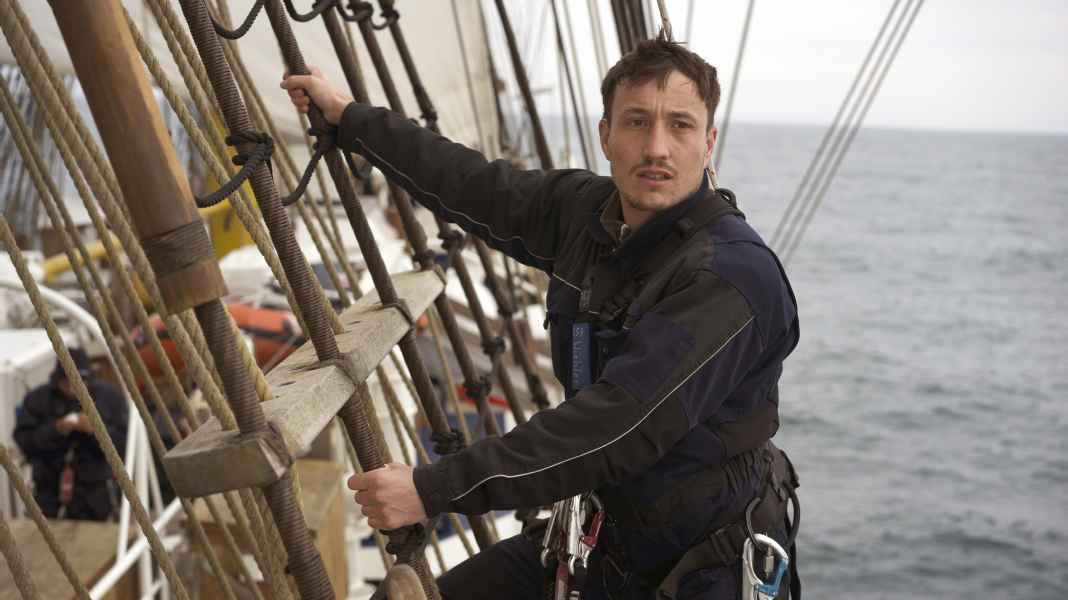
Tell me, Mr Wiehler, how has the "Gorch Fock" changed your view of the Bundeswehr?
I belong to the generation that no longer did military service. And you rarely come into contact with the Bundeswehr in everyday life. There are also a lot of prejudices in public discourse - about broken helicopters or right-wing extremist networks. But that's only one side, as I've learnt. The other side consists of smart soldiers who do a great job.
It is important to look at the Bundeswehr in all its facets.
You say it was the hardest two weeks of your life. Why is that?
There are several reasons for this. Firstly, I joined a group that had already known each other and the boat for a year. I wanted to experience the same challenges as them, but I was lagging behind. Secondly, there was the film. I always had to think about who I was talking to, what we were filming and what not. Last but not least, our cameraman got seasick and I had to look after him as well.
Was the voyage on the "Gorch Fock" your first sailing experience?
Well, my father sailed. When I was young, I learnt the basics of sailing on Lake Constance for a while. But that was a long time ago and since then I've hardly had anything to do with sailing. What's more, travelling across the Atlantic on a square-rigged sailboat is quite different. It's hard to compare.
You are one of the first reporters to take part in the training programme. How did this come about?
In contrast to previous reports, in which reporters travelled along, were accommodated in their own cabins and documented the events, the YouTube format "Y-Kollektiv" takes a different approach.
We immerse ourselves directly in the lives of the protagonists in order to create more understanding and real eye level.
I think a request like ours, which includes sleeping in hammocks, wearing the uniform and working night shifts, simply didn't exist before. I wanted to be treated like any other cadet right from the start - and that's exactly what was made possible.
More on the topic:
It was probably also difficult to be on board, especially after the scandals surrounding the renovation and the deaths. However, I have the impression that openness towards the media has also improved with the new commander.
Your film also addresses controversies. What makes the "Gorch Fock" so controversial?
One question asked by both cadets and society is whether we really need such an expensive and traditional ship. The benefits of sail training for young officers who will later serve on modern warships are also controversial.
I had the impression that responsibility, military values and team spirit were taught well on the "Gorch Fock". It is a bonding and instructive experience. It conveys a feeling for seafaring that is very different from that on the highly technical "grey ships". There are many valid arguments on both sides.
I don't dare to make a final judgement - but it is important to have this discussion.
